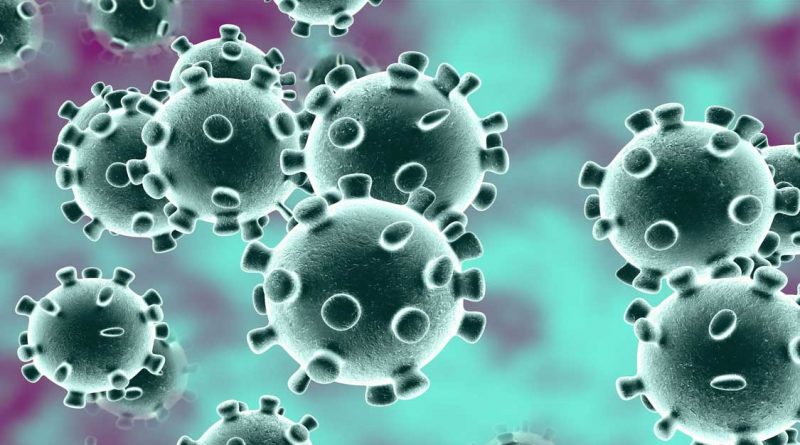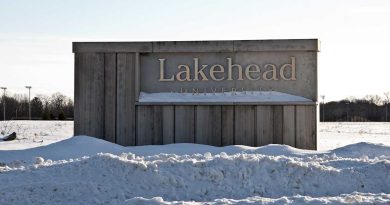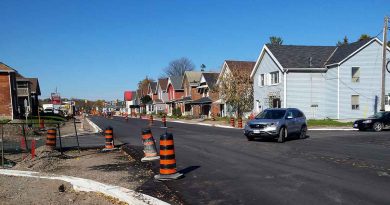ANALYSIS: Wednesday Roundup of COVID – 19 Information
UPDATED
By John Swartz
This is intended to highlight information from sources SUNonline/Orillia trusts. No memes, no fear mongering, no unsubstantiated claims allowed. There are some things included other media aren’t paying attention to which have local implications.
First the news. There is now one case in Orillia, a 60-year-old man who travelled internationally. He visited Orillia Soldiers’ Memorial Hospital March 16 and is isolated at home.
There have 5 cases in Simcoe County with one death, a 70-year-old Barrie man.
Stay Vigilant
Many people will not get the virus and many of those who do may not get symptoms or will not feel any worse than getting the flu (COVID – 19 is not a flu, but many of the symptoms are similar, and some of the treatment you can use at home are similar). Of the latter, some people may require hospitalization.
My father once told me not to fear snow on the road, but respect what it can do to your ability to handle a car and drive accordingly. This is the same thing, most of us will navigate this crisis without negative outcome, which doesn’t mean you don’t have, or won’t have the virus, or won’t know if you had it, but we should act accordingly and respect what the virus can do.
Information is changing daily, some times more frequently. This doesn’t mean all of the previous information is invalid, most of it is still good.
For example, the storyline this virus is an old person’s thing was shot down Tuesday when a study from Italy showed 50% of hospitalizations were for those under the age of 50. Most under 50, but not all, recovered. The opposite is true for those over 50. It is still the case that children are largely not getting sick and if so, returning to health – but they can still be carriers.
Another reason to follow all guidelines is, unlike the other viruses we’ve seen this century, doctors overseas are reporting there are long–lasting respiratory effects in otherwise recovered COVID – 19 patients.
City Hall Update
All municipal facilities are closed to the public, including the landfill. Gayle Jackson is self-isolating because her daughter returned from the U.K. and she is working from home. Two other staff are self-isolating.
Services like road repair and fire are still functioning otherwise. Waste collection is still happening as scheduled.
Stats And Comparisons
To put into context with what we have experienced before it is useful to compare this outbreak to others.
Most of the stats are from the World Health Organization. We used stats from Wikipedia for H1N1 that were derived from WHO, but the citations would not track back to WHO.
SARS – (2003) 29 countries, 8,437 cases, 813 deaths.
MERS – (2013) mostly in Middle East and Europe, 2,494 cases, 858 deaths
H1N1 Flu – (2009) 6.7 million cases, just short of 20,000 deaths
COVID -19 – as of March 17, 159 countries, 179,111 cases, 7,426 deaths. On March 13 there were 51,767 cases world-wide, 1,775 deaths
What’s worth understanding is the SARS stats covered an outbreak which lasted 6 months. The H1N1 time frame was 14 months. MERS is ongoing. SARS, MERS and COVID – 19 are coronaviruses (the common cold is also), these are not flus, though the symptoms are similar.
What To Do If You Get It
Doctors in European jurisdictions are finding the incubation period between time of infection and when symptoms emerge is 5 days.
If you think you have it, first call the provincial reporting number, 1-866-797-0000. You will be asked questions which will determine what you will be asked to do. Note, it is important to tell them what prescription drugs you are taking and any medical history involving respiratory, blood pressure or heart issues. They may not ask about those things because they are concentrating on tracking where you have been.
They may tell you to go to the hospital, or to get a test (they’ll tell you where to go for it) but more likely just to stay home, treat yourself and call back if it gets worse.
Calling is important even if you think your symptoms are mild. We all need the statistical information they track in order for authorities to decide what measures need to be made or modified. If they don’t know how many people have symptoms it skews numbers and response. Look at the American situation, they didn’t do anything of substance for such a long period of time they don’t know how extensive things really are and only have estimates provided by those who have had experience with pandemics to work with.
Do not go to the hospital or bug your doctor, they’re busy. The hotline is set up to help them, so call it first.
Treatment At Home
Today the World Health Organization said,
“The World Health Organization recommended Tuesday that people suffering COVID-19 symptoms avoid taking ibuprofen, after French officials warned that anti-inflammatory drugs could worsen effects of the virus.
The warning by French Health Minister Veran followed a recent study in The Lancet medical journal that hypothesised that an enzyme boosted by anti-inflammatory drugs such as ibuprofen could facilitate and worsen COVID-19 infections.”
They recommend using paracetamol (acetaminophen) instead.
SUNonline/Orillia contacted retired doctor John Jefferies to find out what people should do if they get sick, but not sick enough to be hospitalized. Essentially treat yourself as you would with a case of the flu. Drink lots of fluids.
He highly recommends cutting out sugar and taking vitamins C and D. Other medical services investigated by SUNonline also recommend Vitamin E. It’s a good idea to do those things now before any sickness happens.
What Happens Here if Things Go South
The issue in Italy and elsewhere has been trying to care for the sick who are hospitalized. It’s not just a case of having tests, ventilators and other equipment, but space is a problem too.
In the event things get out of hand (which given the measures taken in Canada may head off a spike of cases overwhelming the healthcare system) space could be an issue.
“We’ve already talked about the possibility of needing additional facilities,. We identified a couple of those,” said Mayor Steve Clarke.
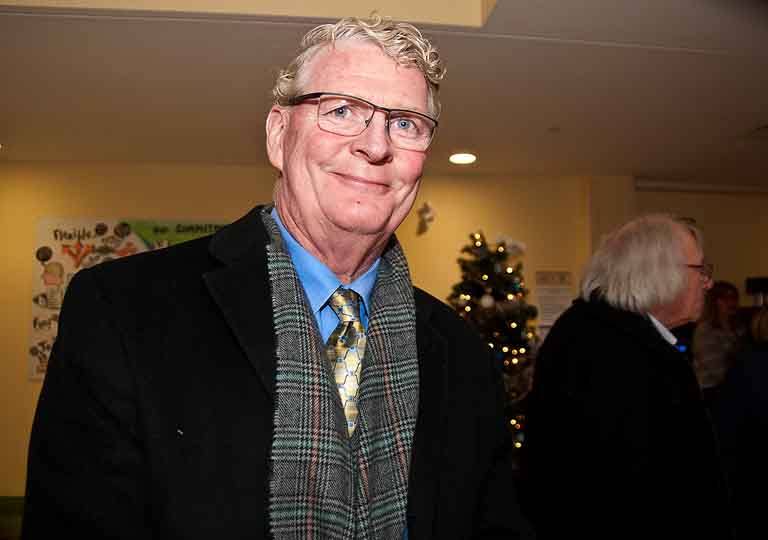
“We’re in constant communication with Carmen (Stumpo) from the hospital, constant communication with the medical officer of health, Dr. Gardiner and his team, and our lead is Brent Thomas, the fire chief. We have made it very clear to Carmen he can reach out to us if there is a need. We will use any needed City facilities.”
SUNonline/Orillia has been requesting phone interviews with a hospital official since last Friday to find out what the preparations are, if they have enough of what is needed, and what happens if things become too much for the facility to handle. We have not had a response to phone calls, or emails.
NEW – Read more about how Soldiers’ is preparing here.
Another aspect which seems to be overlooked in media reports is what happens if deaths from COVID – 19 exceed normal rates. Are funeral homes prepared?
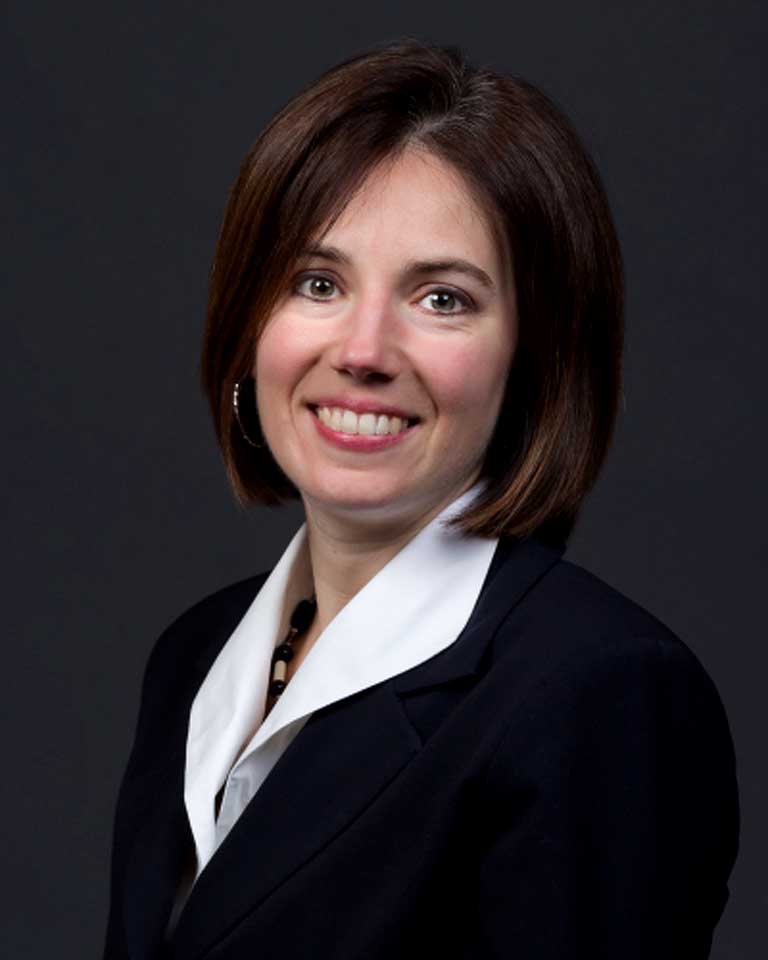
Nicole Johnstone, Mundell Funeral Home.
“Absolutely we’ve thought about it,” said Nicole Johnstone, manager of Mundell Funeral Home. “Being partners with Park Lawn, they have access to storage and refrigeration we could never offer here in a small town. We do have that flexibility.”
“Celebrations of life will be postponed and people tend to understand that and to be honest with you that would not be abnormal because that’s the new consumer trend anyways.”
Dave Carson of Carson Funeral Homes said they have a unique situation in Orillia because they have more space.
“I don’t imagine that’s going to be the case, specially here. Toronto might be a different story. Our building, generally we have lots of space. We can turn unused garage space into holding space if we have to. We have a lot more opportunity than a lot of other facilities do.”
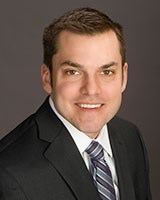
“As far as funerals go, it would be private family services, gatherings under 50 (people).”
“Our governing body, Bereavement Authority of Ontario, is constantly communicating – who has supplies and what are the capabilities. There’s meetings at the local crematorium about what capacity is and could they alter their shifts to handle an increase of flow, which they always do. All these things are ready to be triggered.”
Border Closing
The prime minister announced at 10:40 a.m. today the border is closing to travelers for entertainment and recreation purposes. Essential travel will continue. Supply chains including trucking, essential work are not affected.
The closing addressed those who were clamoring the past few days for the border to be closed with many people believing border crossings both ways were business as usual. This was not the case. The Canadian government put measures in place to investigate travelers, putting the onus, by signature, on travelers to self-isolate for 14 days. This implied people on both sides should stay home. Now it’s being enforced.
UPDATE: A new study reported by the Washington Post generally supports previous information regarding children as SUNonline/Orillia has reported. However the age group up to 5 years old are more susceptible and requiring urgent care than previously thought. Parents of children in this age group might wish to take extra care.

